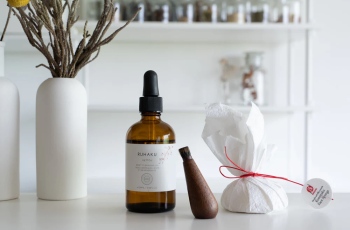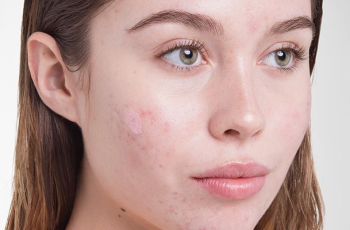
What Does Glycolic Acid Do To Your Face & What Are Its Benefits?
Yes, we are here again to talk about another chemical exfoliant, but I can assure you, you will want to know everything there is about this glycolic acid,
its really good for your skin which is why we have formulated glycolic acid into several products including our Glycolic Face Wash, Blackhead Peel Away Mask and Glycolic Egg.
So, let’s jump right in and learn more about the skincare benefits of glycolic acid.
What is glycolic acid?
As mentioned already glycolic acid is an alpha hydroxy acid (or AHA) and is derived from sugar cane, much like other AHAs it has a humble and natural beginning.
But there is one aspect of this acid that makes it unique, and that is how small it is.
Its molecule size is the smallest of all the acids meaning it is highly effective and the quickest to penetrate through the skin reaching the lower layers of the skin and getting busy restoring it.
What does glycolic acid do to your face?
Glycolic acid is able to exfoliate the skin buffing away dead skin cells that can build-up on the surface of the face and lead to skin concern, such as blemishes, dry patches and a dull complexion.
Glycolic is able to dissolve the “glue” that is holding these skin cells to the face resulting in the unveiling a new, vibrant, brighter skin underneath.
Glycolic acid doesn’t stop there, it is able to work into the deeper layers of the skin, passed the epidermis, and help increase the production of collagen.
This natural production begins to slow down as we age resulting in our skin losing its firmness it is with the help of this boost from glycolic acid you will find your skin will feel firmer
and minimised signs of fine line and wrinkles leaving you with a visibly smoother and more radiant complexion.
How often should you use glycolic acid?
This really boils down to which skin type you have and whether or not your skin has the tolerance to use a chemical exfoliant.
For combination and oily skin types, you may find that using glycolic acid every morning and evening will help unclog your pores and leave you feeling clean, but not stripped of any vital oils and water to keep the skin healthy.
As for dry skin types, if you are wanting to use glycolic acid to help slough away any flaky patches of skin, you can try introducing the product into your routine by using it once a week and recording how your skin is reacting to the formula.
This should all be done after you perform a patch test for 24 hours before applying the product, or consulting a dermatologist or GP.
You understand your skin more than anyone, so even if you are using any glycolic acid products as instructed, but your skin is feeling tight and uncomfortable than stop using it straight away before over-exfoliating the skin potentially causing a reaction.
Having said this, glycolic acid is one of the more gentle acids and you will see many find it safe and easy to use in their daily skincare routine,
you will also be interested to know that glycolic neutralises instantly when in contact with water, this not only means you are able to wash it off if you are finding it stinging or feel uncomfortable,
but once it penetrates the skin and reaches the water in the lower layers of the dermis it will stop there. In other words, you won’t be left with horrendous irritation and bright red skin.
What should I put on my face after glycolic acid?
This depends on which product contains glycolic acid in its formula, but whether it is in a cleanser, face wash or toner,
following glycolic acid with a hydrating serum that has high concentrates of hyaluronic acid (learn more about the benefits of hyaluronic acid here) to help moisturise and settle the skin,
followed by a moisturiser if you wish to use one, then finally an SPF if it is during your daytime routine.
Exfoliating the skin can make it UV sensitive and so always ensure you are protecting the skin from any sun damage by applying an SPF of 30+ every day.
What should I not use glycolic acid with?
Avoid using other AHAs when using glycolic acid as this can become too much for the skin, instead you can try mixing up your products and using, for example,
a toner including glycolic acid in the evenings and a serum containing vitamin C in the mornings.
This will still allow you to get the best out of these products, but will not overload the skin with too much exfoliation.
It is also advisable to not use a physical and chemical exfoliant during the same routine as it will strip the skin of sebum,
which will lead to its overproduction and from there you will find your skin suffers from a lot of breakouts, such as spots and blemishes.
How long does glycolic acid take to work?
Just like many skincare ingredients, consistency is key. Ensuring you are applying a glycolic acid enriched product regularly will have marked improvement on the overall appearance of your complexion. The speed in which glycolic acid shows skin improvement is another of the many benefits of this AHA.
It is thought that you will begin to see results in 2-3 weeks and complete skin transformation in 6-8 months.
Which is better retinol or glycolic acid?
Both of these skin ingredients are quite different in how they help treat the skin. Glycolic acid delivers impressive results at keeping the skin’s clarity and restoring the healthy glow.
Retinol is a highly potent ingredient that works wonders for combating any signs of ageing, such as fine lines, wrinkles, pigmentation and many more.
These ingredients work on different areas of the skin meaning you would be able to use both during your evening routine.
You may also find that due to glycolic clearing the skin of any dead cell build-up, the retinol will be able to penetrate the skin and show results more quickly.
There is a lot more information about retinol in our dedicated blog post which can check out for yourselves all about the benefits of using retinol and why it’s so good for the skin.
Do I wash off glycolic acid?
This again depends on the product that is containing glycolic acid, we have mentioned in previous blog posts about the benefit of keeping an active ingredient on the skin for as long as possible, in the form of serum for example.
However, with glycolic molecular weight and size being so small it is able to reach deep into the skin and set to work meaning you not any of your skin benefits if you wash off glycolic acid when using it in your skincare routine.
Didn’t we tell you it would be in your best interests to find out more about this hard-working AHA?
If you are wanting to learn more about what Alpha and Beta Hydroxy Acids do for the skin, check out our complete guide of AHAs and BHAs.

